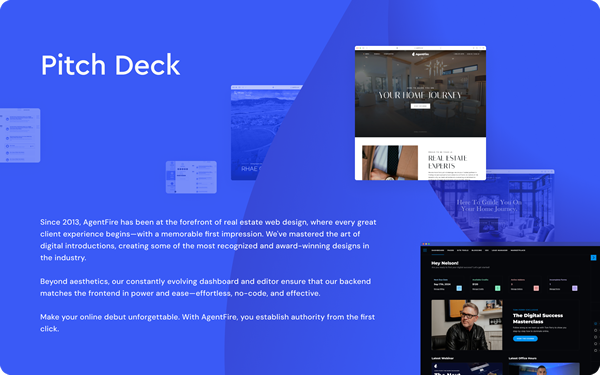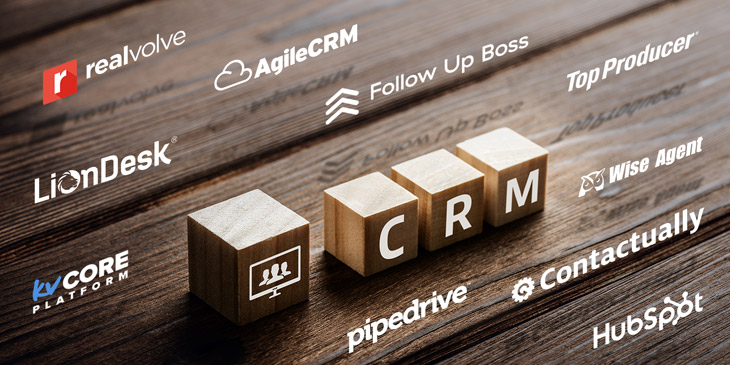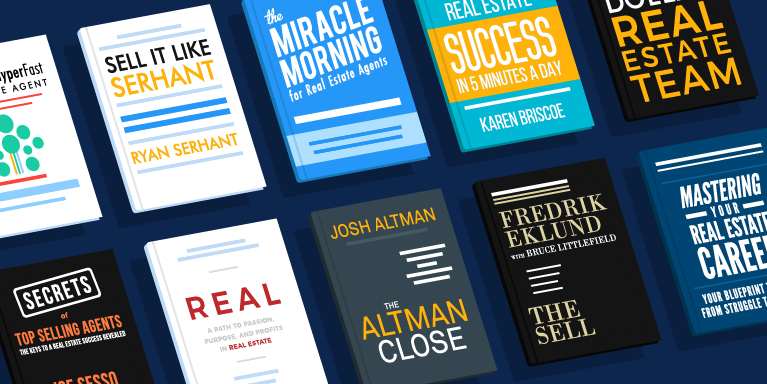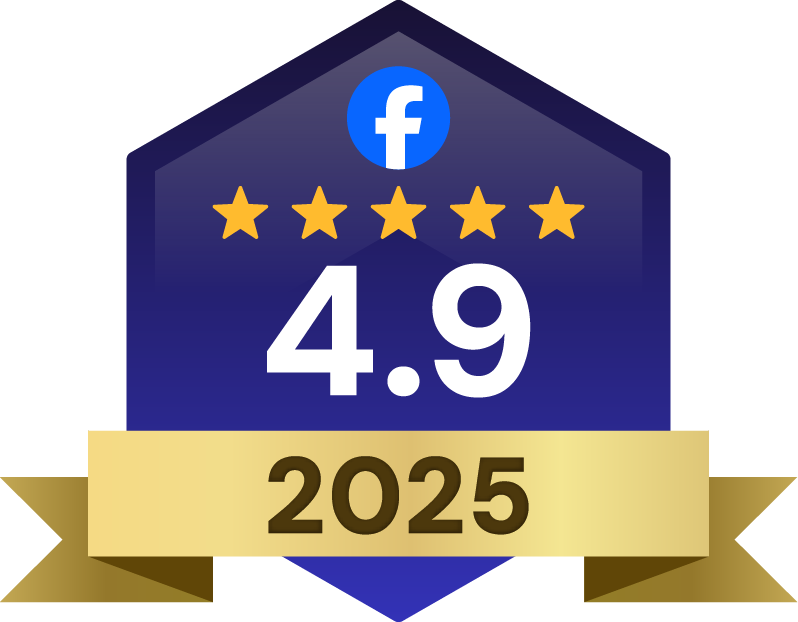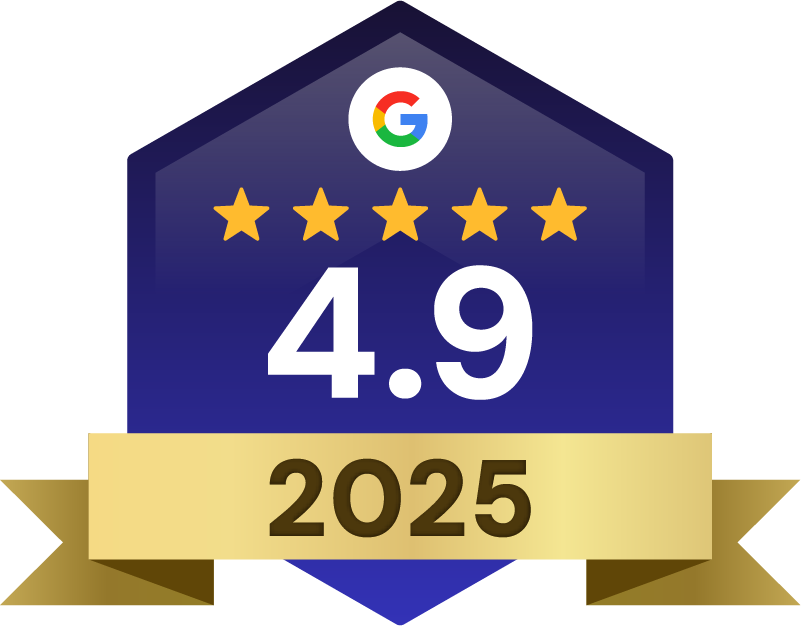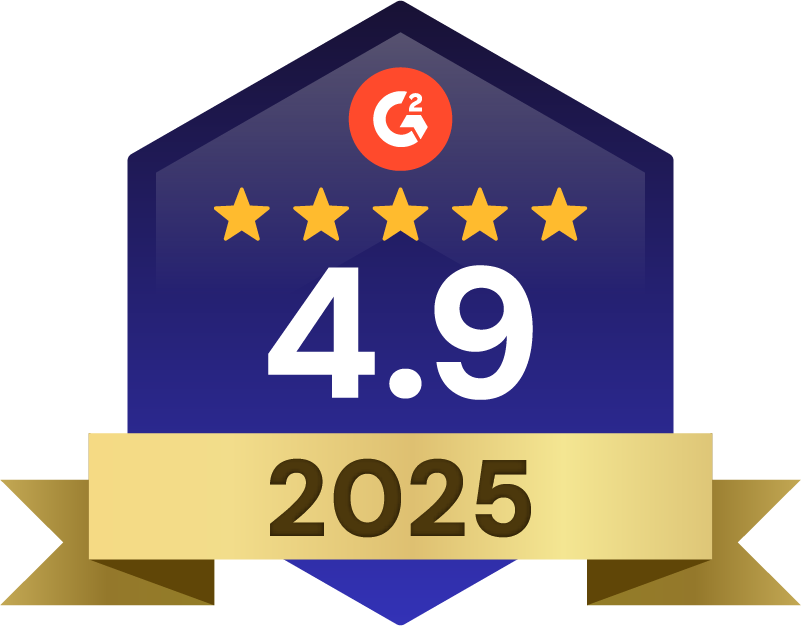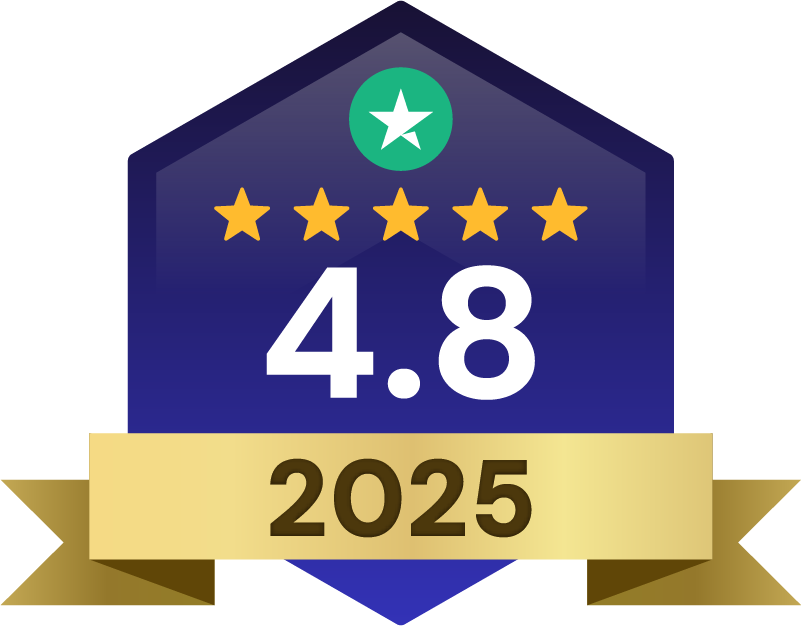The 13 best CRMs for real estate in 2025 to manage your client and lead database effectively, including affordable options.
Branding & Design New Agents
Imagine trying to run a high-volume real estate business with sticky notes and spreadsheets.
It’s not just inefficient—it’s a guaranteed way to lose deals, miss follow-ups, and let potential clients slip through the cracks. In today’s fast-paced market, a top-tier real estate CRM isn’t a luxury; it’s an absolute necessity for managing leads, nurturing client relationships, and scaling your business with precision.
But with so many options available, how do you choose the right one?
In this guide, we break down the 13 best real estate CRMs for 2025, giving you the insights you need to pick the perfect system for your workflow, whether you’re a solo agent, team leader, or brokerage owner.
The 13 Best Real Estate CRMs
With so many real estate CRMs on the market, finding the best fit for your business can be overwhelming. This guide breaks down the top options, their standout features, and how they can help you close more deals with less effort.
1. Follow Up Boss
 Follow Up Boss is a powerful and intuitive CRM designed specifically for real estate agents, teams, and brokerages. Known for its simplicity, automation, and lead management capabilities, Follow Up Boss helps agents stay organized, nurture leads, and close deals faster.
Follow Up Boss is a powerful and intuitive CRM designed specifically for real estate agents, teams, and brokerages. Known for its simplicity, automation, and lead management capabilities, Follow Up Boss helps agents stay organized, nurture leads, and close deals faster.
Follow Up Boss integrates seamlessly with AgentFire, enhancing your website’s lead capture capabilities. The Follow Up Boss widget on AgentFire websites allows real-time lead syncing, meaning any leads generated through search alerts, property inquiries, or sign-ups are automatically imported into Follow Up Boss for instant follow-up. This integration helps streamline your lead management process, ensuring that every lead is captured, nurtured, and tracked without additional manual work.
Features:
- There’s a good reason for that increase in popularity. Follow Up Boss offers excellent organization, marketing, outreach, and lead nurturing tools, perfect for both real estate teams, small brokerages, even individual agents.
- Follow Up Boss has an amazingly intuitive user interface that allows you to figure out its tools as quickly and painlessly as possible.
- All the core functions of the Follow Up Boss platform are featured in a single interface, making it easy to find the right contacts, keep track of all your tasks, active campaigns, and add new leads.

Pricing:
- Grow – This option costs $69 per user/month ($57/month on its annual plan), and it includes all the core Follow Up Boss CRM features. In addition, it provides you with a company number, two-way texting, website tracking pixel, email open and click tracking, and many other features.
- Pro – This option costs $499 for up to 10 users/month ($416 on its annual plan), and it includes all the features of the Grow plan, plus additional features such as a White Glove CRM migration, phone number + dialer for calls, call recording and reporting, inbound calls and shared inboxes, and much more.
- Platform – This option costs $1,000 for up to 30 users/month ($833/month on its annual plan). In includes all the features of the Grow and Pro plans, plus Priority Support, a Dedicated Success Manager, API access and support, Teams within Teams, and much more.
2. Lofty CRM (formerly Chime)
Lofty CRM is a sophisticated real estate CRM designed to streamline lead management, automate workflows, and enhance team collaboration. With its AI-driven features and comprehensive toolset, Lofty CRM is ideal for agents, teams, and brokerages looking to scale their operations while providing a personalized experience for clients.
Lofty CRM integrates seamlessly with AgentFire, making it easy to sync leads from your AgentFire website directly into Lofty’s platform. The direct integration allows leads captured from property inquiries, search alerts, and sign-ups to flow automatically into Lofty CRM, ensuring no lead is missed. This integration enables faster follow-up and more efficient lead nurturing, helping you manage your leads and grow your business without manual data entry.
Features:
- AI-Powered Lead Generation: Lofty CRM offers smart lead capture tools, including customizable IDX websites and landing pages, plus AI-driven recommendations to prioritize high-quality leads.
- Lead Nurturing & Automation: Automate follow-up emails, text messages, and personalized communication sequences to ensure consistent engagement with leads throughout their journey.
- Advanced Pipeline Management: Visualize and manage leads through each stage of the sales process with customizable pipelines, helping you track and close more deals.
- Customizable Dashboards & Reporting: Create personalized dashboards and reports to monitor key metrics, including lead activity, conversion rates, and sales performance.
- Integrated Marketing Tools: Run targeted email campaigns, social media marketing, and SMS messaging directly from the platform to engage clients at multiple touchpoints.
- Mobile App: Stay productive on the go with Lofty’s mobile app, offering full access to lead management, communication tools, and reporting from anywhere.
Pros & Cons:
Pros:
- AI-Powered Automation: Lofty’s AI tools help prioritize leads and recommend next actions, boosting efficiency and lead conversion.
- Scalable for Teams & Brokerages: With advanced team collaboration features and performance tracking, Lofty is great for larger teams or brokerages.
- Comprehensive Lead Generation: Includes IDX websites, landing pages, and paid ad integrations to capture leads from multiple sources.
- Customizable Workflows: Tailor the CRM to your specific business needs with flexible workflows, reports, and marketing tools.
Cons:
- Price: Lofty is a higher-priced CRM, which may be a barrier for smaller teams or solo agents.
- Learning Curve: The platform’s extensive features and customization options may require some time to master.
- Complex Setup: Initial setup and customization may require support or training, particularly for larger teams.
Pricing:
- Core Plan: Starting at $99/month per user. Includes basic lead capture, pipeline management, and email automation tools.
- Pro Plan: Starting at $299/month per user. Adds AI-driven lead scoring, advanced reporting, and marketing tools.
- Enterprise Plan: Custom pricing for larger teams or brokerages, offering full customization, dedicated support, and advanced integrations.
3. LionDesk
 Let’s start things off with LionDesk. Like the majority of CRMs in this list, LionDesk was created specifically for real estate professionals.
Let’s start things off with LionDesk. Like the majority of CRMs in this list, LionDesk was created specifically for real estate professionals.
Thanks to its multitude of features, it can easily be an all-in-one solution for real estate agents, brokers, teams, and lenders to improve their operations, boost drip campaigns, and overhaul their client interactions.
Features:
- LionDesk lets you easily track and store the details of every interaction you’ve had with your contacts, from emails to phone calls in a single all-encompassing platform. Its interface is highly intuitive and easy to navigate, making it easier to jump in and start using it as quickly as possible.
- In addition, it includes tools not available in other CRMS, such as video emails and video texting. These can be created quickly and intuitively directly from LionDesk, without the need of a third party video editor.
- LionDesk also you automate your drip campaigns in a matter of minutes, and keep track of its results instantly.
- And if you’re migrating from a different CRM (or if up to this point you were simply keeping track of all your interactions on a spreadsheet) LionDesk’s data migration tools lets you easily import contacts from third-party CRMS and spreadsheets.

Pricing:
These packages share the same core CRM features, but differ in terms of monthly credits and certain premium add-ons. Here is quick overview of these plans:
- Free Trial: This option lets you try out LionDesk and get used to its user interface. It gives you 15 texts, 5 video texts, 150 emails, and 5 lead assists.
- Starter: This package costs $25 per month and comes with all the standard features + monthly credits of 1,000 emails and 15 texts.
- PRO+: This package costs $49 per month and comes with all starter features + monthly credits of 5,000 emails, 1,000 texts, and 100 video texts.
- Elite: This package costs $99 per month and comes with all PRO+ features + monthly credits of 15,000 emails, 3,000 texts, and 300 video texts.
4. KVCore
 KVCore is a cloud-based CRM platform specifically designed with modern brokerages in mind. As with any cloud-based solution, KVCore provides immense flexibility of access to its users, and much more security than an office server could provide.
KVCore is a cloud-based CRM platform specifically designed with modern brokerages in mind. As with any cloud-based solution, KVCore provides immense flexibility of access to its users, and much more security than an office server could provide.
Although we are primarily talking about KVCore’s CRM capabilities, this is an all-in-one real estate marketing platform. It’s myriad of features effortlessly closes the gap between a real estate website and a CRM, making it superbly efficient when it comes to capturing leads and storing new leads’ information automatically.
In fact, KVCore allows agents to track all client interactions and referrals in the same interface and helps them stay on top of their local market via the property alert feature.

Another distinctive feature of KVCore is its advanced behavioural automation system. Emails and texts are fully automated and each message is given a unique and personalized tone. This will pay dividends down the road as behavioural automation helps build stronger relationships with customers.
KVCore prices range from around $500 per month for 5 agents to $1200 per month for larger teams. This might seem like a significant jump relative to Follow up Boss. However, it is important to keep in mind that KVCore is an all-in-one solution.
KVCore comes with its own website platform and does not require setting up a separate site with an IDX feed.
Features:
- Lead Generation & Nurturing: KVCore offers built-in lead capture tools, including customizable IDX websites, landing pages, and lead routing. The platform also automates lead nurturing with personalized email and text message campaigns.
- Advanced Automation: Automate follow-up tasks, notifications, and communications, so no lead is left behind. Use triggers and action plans to ensure timely and relevant interactions with prospects.
- Customizable Dashboards & Reports: Gain insight into your business performance with custom dashboards and detailed reports on lead activity, conversion rates, and sales performance. Track progress through every stage of the sales pipeline.
- Smart CRM & AI-Powered Insights: KVCore’s AI tools help prioritize leads, assess engagement, and provide actionable insights to boost conversion rates and refine marketing strategies.
- Transaction Management: Manage all aspects of your real estate transactions, from contract generation to closing, within a single platform.
- Mobile App: Stay productive on the go with KVCore’s mobile app, which allows you to manage leads, track deals, and communicate with clients from anywhere.
- Integrated Marketing Tools: KVCore comes with a suite of marketing tools, including email campaigns, social media automation, and SMS marketing, helping agents stay connected and engaged with their client base.
Pros & Cons:
Pros:
- All-in-One Platform: Combines lead generation, CRM, marketing automation, and transaction management in one platform, making it a powerful solution for real estate professionals.
- Advanced Automation: Save time and increase efficiency with automated workflows and lead nurturing campaigns.
- Scalable for Teams & Brokerages: Ideal for large teams or brokerages, with robust collaboration tools and performance tracking features.
- IDX Website Integration: Seamlessly integrates with IDX websites, making it easier to capture and convert leads directly from your website.
- AI-Powered Features: KVCore uses AI to help prioritize leads and provide actionable insights, improving decision-making and lead conversion.
Cons:
- Price: KVCore is on the higher end of the pricing spectrum, which may be a barrier for solo agents or small teams with limited budgets.
- Learning Curve: Due to its extensive feature set, it may take some time to fully master the platform.
- Customization Can Be Complex: Customizing the platform to suit your specific needs may require training or support, especially for larger teams.
Pricing:
- Core Platform: Starting at $500/month for teams. Includes lead generation, automation, IDX website, and mobile app.
- Add-Ons: Additional features, such as advanced reporting or marketing tools, can be added for an extra cost.
- Custom Pricing for Brokerages: Brokerages can get a tailored plan with additional features, support, and scalability options.
5. Top Producer

If you’ve been a real estate agent for a while, there’s an excellent chance you’ve seen, used or at least been exposed to Top Producer. This CRM (owned by Move Inc. the same corporation that owns Realtor.com) has a long history, being around since 1982.
Features:
- As one of the oldest CRMs geared towards real estate agents in the market, its primary selling point is the huge amount of battle-tested features geared towards making a real estate agent’s life easier.
- It features drip campaigns, marketing materials, and the Market Snapshot feature, which helps keep homeowner’s engaged long after the transaction.
- Users also have access to a personal “follow up coach” that helps them nurture leads through one-touch actions and smart suggestions.

Pros & Cons:
Pros:
- This system is ideal for building lifelong relationships with new prospects and maintaining the ones that you have with your existing pool of clients.
Cons:
- However, one of the biggest issues (which have plagued this CRM for decades now) is its utterly outdated user interface. Remember why we made a big deal of LionDesk and Follow Up Boss having an exceptionally intuitive user interface? This CRM is why.
- Though to be fair, Top Producer has tried to update its UI, and there are some definite improvements in the last few years, you can definitely tell that this is a platform originally created in the ’80s.
So why is this CRM so highly on the list? Because of its sheer number of features, integrations, and affordability.
Pricing:
- Pricing wise, this is one of the most affordable options on this list. The starter plan includes all the core Top Producer CRM features and costs just $40 per month.
- The professional plan comes at $70 per month and includes CRM features + Market Snapshot, a market follow-up that provides agents with valuable hyperlocal data.
- Finally, the advanced plan costs $80 per month and includes FiveStreet, Top Producer’s high-end lead response & management tool.
6. WiseAgent

WiseAgent has gained a reputation as one of the most reliable and efficient CRMs for realtors. It’s designed to simplify your workflow while ensuring you stay connected with leads and clients at every stage of the real estate process. Let’s break it down into specifics.
Features
WiseAgent is loaded with tools that make managing your real estate business seamless:
- Transaction Management: Keep track of deals with templates, commission reports, and property lists. Every transaction stays organized in one place.
- Automated Drip Campaigns: Effortlessly nurture leads with customizable email and text automation.
- Contact Management: Track birthdays, notes, and categorize clients by source or type for better follow-ups.
- Power Dialer: Call multiple contacts at once and save time on follow-ups.
- Social Media Integration: Automatically enhance lead profiles with social media data.
- Unlimited Document Storage: Store contracts, transaction documents, and more without worrying about limits.
Pros & Cons
Pros:
- Affordable pricing makes it one of the best CRMs for realtors on a budget.
- Powerful lead automation tools, including AI responses and drip campaigns.
- Seamless integration with over 100 tools—perfect for syncing with your existing systems.
- Unlimited 24/7 customer support and training, so you’re never left guessing.
- Mobile-friendly platform for on-the-go management.
Cons:
- Lacks the visual pipeline tools that some agents may prefer.
- Advanced features might require a learning curve for beginners.

Pricing
WiseAgent is a standout option for real estate professionals, especially those looking for a real estate cheap CRM with robust features:
- Standard Plan: $49/month or $499/year (around $41.58/month when billed annually). Includes all core features like lead automation, transaction management, and drip campaigns.
- Custom Enterprise Plan: Tailored for teams of 15+ agents, with pricing based on your specific needs.
- Add-On Options:
- WiseText SMS: $11/month + $80 registration fee.
- Additional Team Members: $20/month for every 5 users.
- Lead Enhancement: $5/month for unlimited credits.
For agents searching for “CRM fee real estate” solutions, WiseAgent offers unmatched affordability and features, making it one of the best CRMs for realtors who want efficiency without breaking the bank.
7. Realvolve

When it comes to CRMs, Realvolve stands out for its advanced workflow automation and deep customization features. Designed specifically for real estate professionals, it’s one of the most powerful tools for building and maintaining client relationships while streamlining your processes.
Features
- Workflow Automation: Realvolve’s workflows are highly customizable, allowing you to automate every step of your lead generation, follow-up, and transaction management processes. Think of it as your personal assistant, ensuring no task is overlooked.
- Contact Tagging: Easily organize contacts with tags to segment your database. Whether you’re categorizing buyers, sellers, or past clients, this feature makes searching and filtering effortless.
- Behavioral Triggers: Automatically prompt follow-ups or tasks based on client activity, helping you stay one step ahead in nurturing relationships.
- Custom Templates: Pre-built email, text, and task templates save you time while ensuring all communication is professional and consistent.
- Mobile-Friendly: The Realvolve mobile app keeps you connected on the go, letting you manage deals, send messages, and track workflows from anywhere.
- Third-Party Integrations: Sync seamlessly with tools like Google Workspace, Zapier, and more to enhance your productivity.
- Analytics & Reporting: Get actionable insights into your team’s performance, lead conversion rates, and bottlenecks in your sales pipeline.
Pros & Cons
Pros:
- Tailored specifically for real estate workflows, making it highly intuitive for agents and brokers.
- Unparalleled workflow customization for automating repetitive tasks.
- Mobile app ensures you can manage your business from anywhere.
- Integrates easily with other platforms and tools, keeping everything connected.
Cons:
- The setup process and learning curve can be steep for beginners.
- Pricing is higher than some “real estate cheap CRM” options, but the features deliver immense value for serious agents.
Pricing
- Solo Agent Plan: $49/month (billed annually). Perfect for individual agents who need robust lead tracking and workflow automation.
- Team Plan: $119/month for up to three users. Ideal for small teams that require collaborative features.
- Enterprise Options: Custom pricing available for larger teams or brokerages with advanced needs.
Realvolve’s combination of automation, customization, and robust features makes it one of the best CRMs for realtors serious about scaling their business. It’s not just a CRM—it’s a comprehensive tool for managing your leads, clients, and transactions all in one place.
8. Pipedrive

Pipedrive is built for sales-focused professionals, which makes it a powerful contender for real estate CRMs in 2024. With its visual pipelines, automation features, and customizability, Pipedrive is a no-nonsense, results-driven solution for agents looking to streamline their processes and scale their business.
Features
- Visual Pipeline Management: Pipedrive’s visual pipelines make tracking leads and deals effortless. You’ll see exactly where every prospect is in your sales journey, from initial inquiry to closing. The drag-and-drop interface is intuitive and keeps your workflow organized.
- Lead Generation Tools: The LeadBooster add-on is a goldmine for realtors. It includes chatbots, live chat, web forms, and a Prospector tool to identify high-quality leads based on custom criteria. Leads flow directly into your CRM and are ready to be nurtured.
- Task Automation: Set up automated workflows to handle repetitive tasks like follow-up emails, lead assignments, and even deal progression. This automation ensures you stay focused on selling homes, not juggling busywork.
- Scheduler Integration: The built-in scheduler allows clients to book meetings directly based on your availability, cutting out unnecessary back-and-forth communication. Appointments automatically sync to your calendar.
- Customization & Integrations: With over 300 app integrations (like email platforms, marketing tools, and financial software), Pipedrive fits seamlessly into your existing tech stack. You can also customize pipelines and workflows to match your unique sales process.
Pros & Cons
Pros:
- A user-friendly interface designed for easy navigation.
- Affordable plans ideal for agents seeking a real estate cheap CRM with high functionality.
- Powerful automation tools to save time and boost efficiency.
- Customizable workflows and extensive integration options.
Cons:
- Not specifically designed for real estate, lacking tailored features like property listing management.
- Add-ons like LeadBooster require additional fees.

Pricing
Pipedrive offers flexible pricing for agents at every stage:
- Essential Plan: $9.90/month (billed annually) for basic pipeline and contact management.
- Advanced Plan: $19.90/month (billed annually) with automation and email tracking.
- Professional Plan: $39.90/month (billed annually) for advanced reporting and multiple pipelines.
- Enterprise Plan: $59.90/month (billed annually) with added security and customization.
For agents searching for the best CRM for realtors, Pipedrive balances affordability with robust tools, making it an excellent choice for managing leads and deals efficiently.
9. HubSpot’s CRM

HubSpot CRM is a game-changer for real estate agents in search of a powerful, affordable, and easy-to-use platform. Whether you’re a new agent looking for a real estate cheap CRM or an established professional scaling your team, HubSpot offers robust features and a free plan that stands out in today’s market. Let’s dive into what makes HubSpot one of the best CRMs for realtors.
Features
- Streamlined Contact Management: Keep every buyer, seller, and lead organized with detailed contact profiles. Segment clients based on criteria like buyer/seller status or deal stage for highly targeted follow-ups.
- Deal Tracking Made Simple: Visualize your sales pipeline with drag-and-drop functionality. Easily move deals through stages and track your progress toward closings.
- Email Marketing Automation: Automate your outreach with pre-designed templates and email sequences. Monitor open rates, clicks, and responses to refine your strategy.
- Task Automation: Set up triggers to automatically assign leads, send reminders, or update deal stages—saving you time and reducing manual work.
- Built-In Scheduler: Clients can book appointments directly through your calendar, eliminating back-and-forth and streamlining your communications.
- Reporting & Analytics: Access real-time data on lead activity, deal progress, and sales performance to make smarter business decisions.
- Integrations Galore: HubSpot integrates seamlessly with Gmail, Outlook, and hundreds of tools, making it perfect for syncing with your existing systems.
Pros & Cons
Pros:
- Free plan with essential CRM tools, perfect for agents seeking a CRM fee real estate solution.
- User-friendly interface with minimal setup time.
- Scalable features for growing teams or brokerages.
- Advanced automation tools to improve efficiency.
Cons:
- Premium features (like advanced reporting) are locked behind higher-tier plans.
- Some workflows may require a learning curve for new users.

Pricing
- Free Plan: Includes core features like contact management, deal tracking, and email templates. Ideal for agents starting out.
- Starter Plan: $15/month per user. Adds marketing automation and custom branding.
- Professional Plan: $90/month per user. Unlocks advanced workflows, team collaboration, and performance analytics.
- Enterprise Plan: $150/month per user. Perfect for brokerages needing advanced customization and predictive lead scoring.
HubSpot CRM delivers exceptional value for real estate professionals, especially those seeking real estate CRMs that combine affordability, scalability, and powerful tools. Whether you’re managing a single pipeline or building a high-performing team, HubSpot has the features to keep you ahead of the market.
10. Go High Level
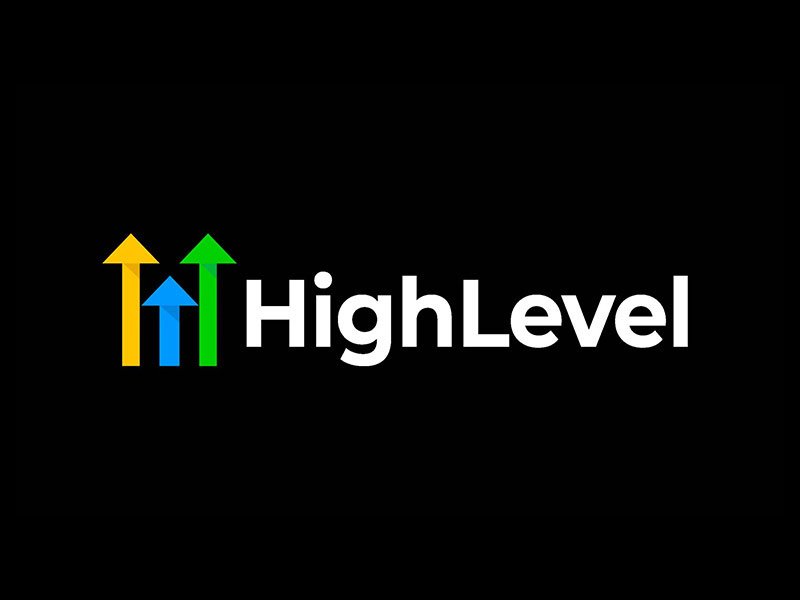
GoHighLevel is an all-in-one CRM platform designed to help real estate agents and teams streamline their operations, manage leads, and automate marketing efforts. Known for its versatility, GoHighLevel combines CRM, email marketing, SMS marketing, funnels, and more in one easy-to-use platform. Whether you’re a solo agent or running a large team, GoHighLevel offers a comprehensive solution to manage client relationships and grow your real estate business.
Features
- Lead Management & Pipeline Tracking: Capture, organize, and manage leads effectively through customizable pipelines. Track leads through every stage of the sales process to ensure timely follow-ups and conversions.
- Automated Marketing Campaigns: Use automated email and SMS sequences to nurture leads and keep clients engaged throughout their journey, from first contact to closing.
- Sales Funnel Builder: Build high-converting sales funnels to capture leads, collect contact information, and drive engagement. Integrate landing pages, forms, and calls to action to turn traffic into leads.
- Appointment Scheduling: Integrate scheduling tools to allow leads and clients to book meetings directly from your emails, website, or text messages.
- SMS & Email Communication: Automate and manage SMS, email, and phone communication in one place to ensure no lead is left behind.
- Reporting & Analytics: Monitor key metrics like lead conversion rates, email open rates, and sales pipeline progress through in-depth reporting and analytics.
- Mobile App: Access your CRM and manage leads, appointments, and marketing campaigns on the go with GoHighLevel’s mobile app.
Pros & Cons
Pros:
- Comprehensive All-in-One Solution: GoHighLevel combines CRM, marketing automation, funnel building, and communication tools in a single platform, reducing the need for multiple tools.
- Highly Customizable: Customize workflows, pipelines, and automation sequences to meet the specific needs of your real estate business.
- Advanced Automation: Automate email, SMS, and other communication workflows to save time and ensure timely follow-ups.
- Cost-Effective: Given its wide array of features, GoHighLevel offers good value for money, especially for teams and brokerages that need a robust system without the high costs of other platforms.
Cons:
- Learning Curve: With its extensive features and customization options, GoHighLevel can have a steeper learning curve, especially for agents who are new to CRM platforms.
- Limited IDX Integration: GoHighLevel doesn’t come with built-in IDX integration, meaning agents will need to rely on third-party integrations or custom setups for property listings.
- Complex Setup: The platform’s setup process can be time-consuming, particularly for those unfamiliar with CRM platforms or marketing automation tools.

Pricing:
- Agency Starter Account: Starting at $97/month. Includes core CRM features, email marketing automation, SMS marketing, and funnel building tools.
- Agency Unlimited Account: Starting at $297/month. Adds advanced features like unlimited workflows, funnels, reports, and the ability to manage multiple accounts and clients.
- White Label Account: Custom pricing for agencies looking to brand GoHighLevel as their own, offering full rebranding and client management capabilities.
GoHighLevel is an ideal CRM for real estate professionals looking for an all-in-one platform that combines CRM, marketing automation, and sales funnel capabilities. While it may not offer built-in IDX integration or an entirely smooth setup for beginners, its powerful features, customization options, and cost-effectiveness make it a great choice for agents and teams looking to automate their business operations and scale effectively. Whether you need to capture leads, nurture them with automated campaigns, or track your pipeline to ensure no opportunity is missed, GoHighLevel is built to help you succeed in today’s competitive real estate market.
11. Market Leader

Market leader may be a lead generation company, primarily, but it is also a CRM so great that it is worth mentioning. Market Leader can integrate with almost any lead platform as well.
Features:
- Lead Generation & Capture: MarketLeader includes customizable IDX websites, landing pages, and paid ad integrations to help generate high-quality leads.
- Lead Nurturing: Automate email campaigns, drip marketing, and follow-up tasks to stay top-of-mind with prospects.
- Pipeline Management: Track leads throughout the sales process with detailed pipeline views and custom stages.
- Email & Marketing Automation: Run targeted email campaigns, set reminders, and send personalized messages to nurture relationships and drive engagement.
- Real-Time Alerts & Notifications: Get notified of lead activity and engagement in real time, so you can take immediate action.
- Reporting & Analytics: Monitor your business performance with reports on lead conversion, marketing effectiveness, and sales metrics.
Pros & Cons:
Pros:
- Strong lead generation tools and customizable IDX websites for attracting new clients.
- Comprehensive email marketing and automation features.
- Easy-to-use interface with a focus on productivity and lead nurturing.
Cons:
- Pricing can be on the higher side, particularly for solo agents or small teams.
- Limited advanced customization options compared to some more flexible platforms.
- Lacks deeper integrations with third-party tools.
Pricing:
- Basic Plan: Starts at $25/month. Includes lead capture, email campaigns, and marketing automation.
- Pro Plan: Starts at $49/month. Adds advanced marketing tools, lead nurturing, and reporting.
The cost of the tool depends on the number of leads, not the CRM features. For example, access starts at $189 per month, however each lead will cost you an extra $25 per month. On average, most agents spend $300 – $400 per month to get started.
This lead-focused approach allows you to have new contacts in your database and presents new opportunities to go through your nurturing campaigns and new avenues to turn contacts into transactions.
12. Salesforce
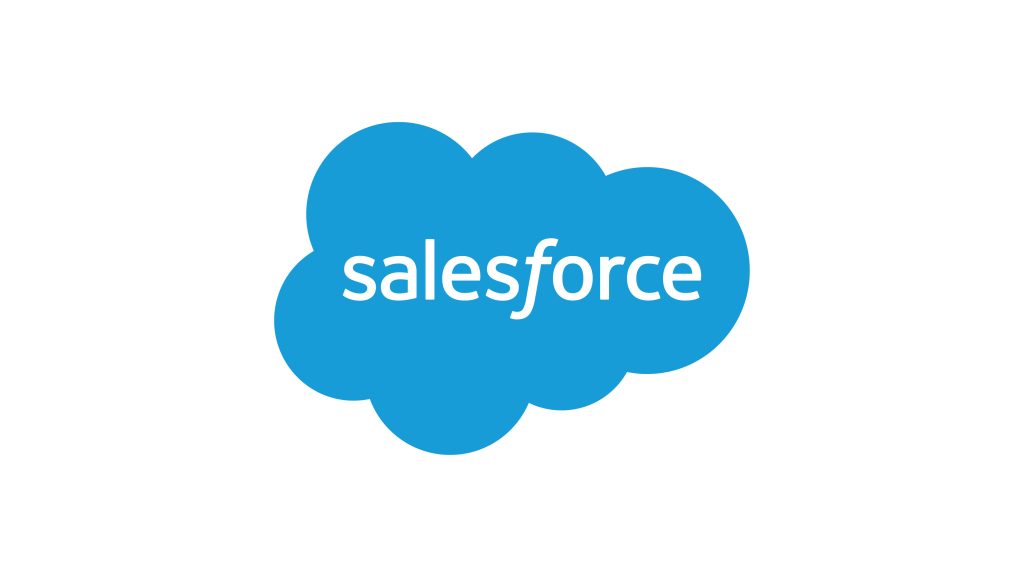
Sales Force is a popular tool in a variety of agencies, real estate only being one of them. Their thousands of users gravitate towards this platform because of the flexibility and personalization options. To start, it’s easy to set up drip campaigns, access it through the app, and set up automation rules. There are few limits to what you can do within SalesForce and may only be limited by budget.
Features:
- Lead & Contact Management: Organize and track client details in a centralized database, segment leads based on specific criteria (e.g., buyer/seller status, deal stage), and ensure timely follow-ups.
- Advanced Lead Scoring & Nurturing: Use AI-powered tools to score leads and automate follow-up sequences, helping you prioritize the most promising opportunities.
- Sales Pipeline Management: Visualize your pipeline with custom views, track deal progress, and manage every stage of the transaction lifecycle, from lead to closing.
- Customizable Dashboards & Reporting: Create tailored reports and dashboards to monitor key metrics, track sales performance, and make data-driven decisions to optimize marketing efforts.
- Collaboration Tools: Salesforce’s Chatter feature allows your team to collaborate seamlessly, sharing insights, tasks, and documents in real time.
- Mobile Access: With Salesforce’s mobile app, agents can manage their business on the go—whether responding to client inquiries or accessing critical documents and data.
Pros & Cons:
Pros:
- Highly Customizable: Tailor workflows, reports, and dashboards to your specific needs, making it perfect for both individual agents and large teams.
- Powerful Automation: Save time by automating tasks like lead follow-ups, email marketing, and deal progression.
- Comprehensive Integrations: Seamlessly integrates with a wide variety of third-party tools, including MLS, email platforms, and marketing tools.
- AI-Powered Insights: Salesforce uses advanced AI features (like Salesforce Einstein) to help predict trends, improve lead conversion, and optimize client interactions.
Cons:
- Steep Learning Curve: Due to its vast feature set and customization options, it can take time to master.
- Price: Salesforce’s pricing can be higher than other CRMs, especially for small teams or solo agents on a budget.
- Complex Setup: While highly customizable, the initial setup and customization can require assistance or training, which might be an obstacle for smaller businesses.
Pricing:
- Essentials Plan: Starting at $25/month per user. Includes basic lead and contact management, email integration, and mobile access.
- Professional Plan: Starting at $75/month per user. Adds more advanced features like custom dashboards, reporting, and automation tools.
- Enterprise Plan: Starting at $150/month per user. Offers advanced customization, AI-powered analytics, and premium integrations for larger teams or brokerages.
- Unlimited Plan: Starting at $300/month per user. Provides the most extensive set of features, including unlimited customization, 24/7 support, and advanced reporting.
13. ReSimpli
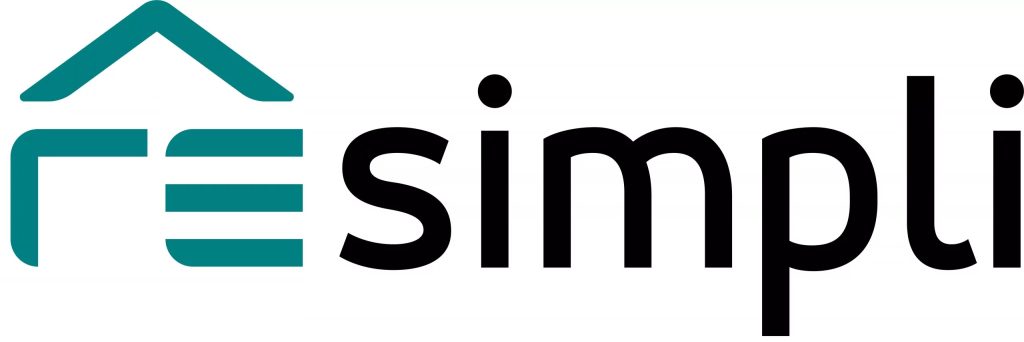
ReSimpli is an all-in-one solution best suited for real estate investors. This CRM is made to streamline complex and abundant data, property sales and more. This platform has innovative features such as list building, drip automation, route tracking, bulk sms, and customizable lead assignments.
Features:
- Lead Management: Track and manage leads with detailed profiles and easy segmentation to ensure no opportunity slips through the cracks.
- Automated Follow-Ups: Set up customizable email and text message sequences to automate lead nurturing and keep your prospects engaged.
- Pipeline Tracking: Visualize your deals and manage your sales pipeline with a clear, drag-and-drop interface.
- Transaction Management: Keep track of contracts, deadlines, and documentation all in one place, helping you stay compliant and organized.
- Reporting & Analytics: Gain insights into your business performance with data-driven reports on lead activity, conversion rates, and sales metrics.
Pros & Cons:
Pros:
- Affordable pricing with a comprehensive set of features, ideal for solo agents and small teams.
- Easy-to-use interface with minimal setup time.
- Strong automation tools that save time and improve efficiency.
- Integrated texting feature for quick and direct communication with leads.
Cons:
- Limited customization options compared to higher-end CRMs.
- Lacks some advanced reporting features found in premium platforms.
Pricing:
- Basic Plan: $25/month per user. Includes lead management, pipeline tracking, and basic automation tools.
- Pro Plan: $49/month per user. Unlocks advanced automation, reporting, and transaction management features.
- Enterprise Plan: Custom pricing. Designed for large teams or brokerages needing advanced customization and full CRM support.
Are you a current AgentFire client? Well, you will be glad to know that AgentFire integrates with every CRM in this list! Whatever your preferred third-party CRM solution is, our platform will allow you to integrate with it in a matter of minutes. Take a look at our CRM integration page to learn more about the process and explore other integration options.
Why Should You Use a CRM in Real Estate?
- Organized Contact Management: Safeguard buyer, seller, and renter info, keeping everything in one place to avoid legal or privacy issues.
- Quick Responses: With all contact info in one place, respond to leads and inquiries instantly without digging through inboxes.
- Sales Pipeline Tracking: Manage your pipeline and track each prospect’s progress, from initial contact to closing.
- Communication Tools: Use automated call and SMS features to streamline follow-ups and urgent updates, all logged in the CRM.
- Lead Nurturing: Set custom triggers to remind you to follow up with leads at specific stages of the buying/selling process.
- Cross-Platform Sync: Automatically sync leads from multiple platforms (SMS, Calendy, etc.) for seamless scheduling.
- Integrations: Ensure your CRM integrates smoothly with your website and other lead generation tools.
- Advanced Reporting: Use data insights to optimize marketing, track key metrics (e.g., time to close, cost per lead), and make smarter business decisions.
What to Consider Before Choosing the Best Real Estate CRM
There are a few necessary questions that every real estate professional must ask in order to choose the perfect CRM:
- What is your budget?
- How will your leads be added to your CRM?
- How many team members will need access to the platform?
- What features was your past CRM missing? What features did you like that you would continue to use?
- What are your automation needs based on your current business and where you’d like your business to go? For example, if your current focus is on nurturing past clients, you’ll want your next CRM to develop awesome drip campaigns and tracking follow ups.
- Will you be sending many bulk texts or emails?
- What external providers does your CRM need to integrate with
FAQs about Real Estate CRMs
What is the best affordable CRM for real estate agents?
RealtyJuggler ($179/year) is great for beginners with basic transaction tracking and drip campaigns. LionDesk ($25/month) offers video messaging and automation, while Zillow Premier Agent CRM is free but only integrates with Zillow leads.
Which CRM is best for growing real estate teams?
Freshsales (Zoho CRM) ($23/user/month) provides automation and AI insights, while WiseAgent ($29/month) combines lead management with marketing tools like email campaigns and landing pages.
What are the top premium CRMs for large teams or brokerages?
KVCore ($500/month) is ideal for large teams with IDX integration, automation, and lead generation. CRM Creatio ($59/month) is highly customizable, offering over 700 integrations and advanced lead scoring.
Is there a free real estate CRM?
Yes, Zillow Premier Agent CRM is free, but it only integrates with Zillow leads and lacks external tool compatibility.
The Bottom Line
Choosing the right real estate CRM isn’t just about managing contacts—it’s about creating seamless, scalable systems that free up your time and maximize every client interaction. The best CRM for you will depend on your business model, team size, and workflow preferences, but one thing is clear: in 2025, automation and integration are no longer optional—they’re essential.
If you’re serious about growth, now is the time to invest in a CRM that not only organizes your leads but actively helps you convert them. And don’t forget, your website plays a critical role in capturing and nurturing those leads. Want to see how a high-performance website can integrate with your CRM for maximum impact? Book a demo with AgentFire today and take your real estate business to the next level!

